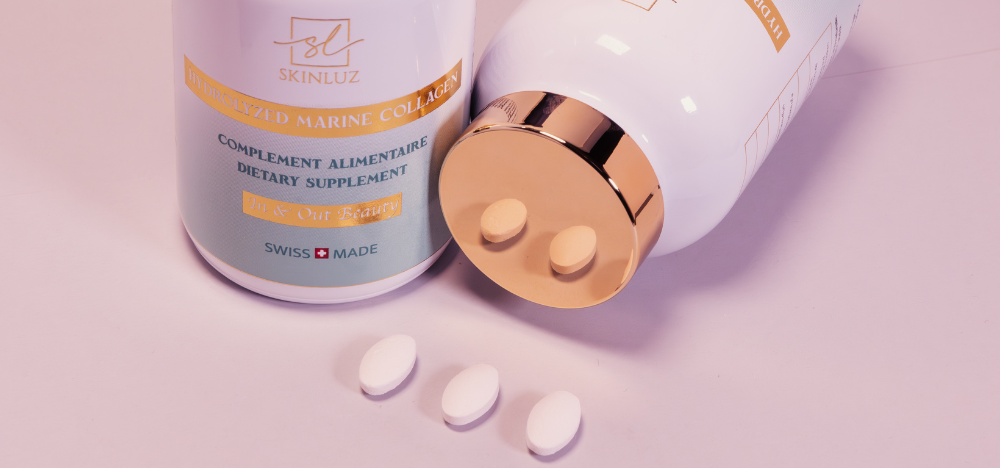
- May 9, 2025
- Beauty, Dietary supplements
Understanding type I collagen and the importance of molecular weight: The Scientific Choices Behind Skinluz
Collagen is the most abundant structural protein in the human body, accounting for approximately 30% of total protein content. It plays a vital role in the cohesion, elasticity, and regeneration of connective tissues — especially the skin, bones, tendons, and ligaments. In the field of nutricosmetics, the type of collagen and its molecular weight are crucial determinants of its effectiveness. At Skinluz, these parameters are selected with precision.
Type I Collagen: A Targeted Choice for Skin Health
There are several types of collagen in the human body, with types I, II, and III being the most common:
Type I collagen is the most abundant, making up over 90% of the body’s total collagen. It is primarily found in the skin, tendons, bones, and ligaments.
Type II is mainly present in cartilage.
Type III is also found in the skin but in smaller amounts than Type I, and plays a role in the structure of internal organs and blood vessels.
Skinluz supplements contain exclusively marine Type I collagen peptides, derived from fish skin. This selection is based on a rigorous scientific approach aimed at choosing collagen sources with optimal biocompatibility and efficacy for improving skin structure and elasticity.
Molecular Weight: 2000 Da for Optimal Bioavailability
Native collagen is a large macromolecule that is too bulky to be efficiently absorbed by the human digestive system. That’s why it undergoes hydrolysis, breaking down into smaller chains of amino acids known as collagen peptides. The molecular weight, measured in daltons (Da), becomes a key criterion.
Research shows that the lower the molecular weight, the better the intestinal absorption and systemic distribution.
The collagen peptides in Skinluz supplements have an average molecular weight of 2000 daltons, placing them among the most highly bioavailable forms of collagen.
This level of hydrolysis enables quick absorption and efficient transport to the dermis, where the peptides can stimulate fibroblasts — the skin cells responsible for producing endogenous collagen.
Synergy with Natural Vitamin C
Vitamin C is essential for collagen biosynthesis. As an enzymatic cofactor, it facilitates the hydroxylation of proline and lysine — two key amino acids involved in stabilizing collagen’s triple helix structure.
Skinluz tablets include natural vitamin C extracted from acerola, ensuring optimal synergy with collagen peptides. This combination not only helps compensate for age-related collagen decline, but also actively supports the body’s natural collagen production and skin regeneration.
Conclusion
Skinluz’s formulation is based on a scientifically sound approach: highly bioavailable (2000 Da) marine Type I collagen peptides are combined with natural vitamin C to promote skin health from within. This advanced combination optimizes both intestinal absorption and dermal stimulation, offering an effective solution for improving skin quality through nutricosmetic supplementation.
